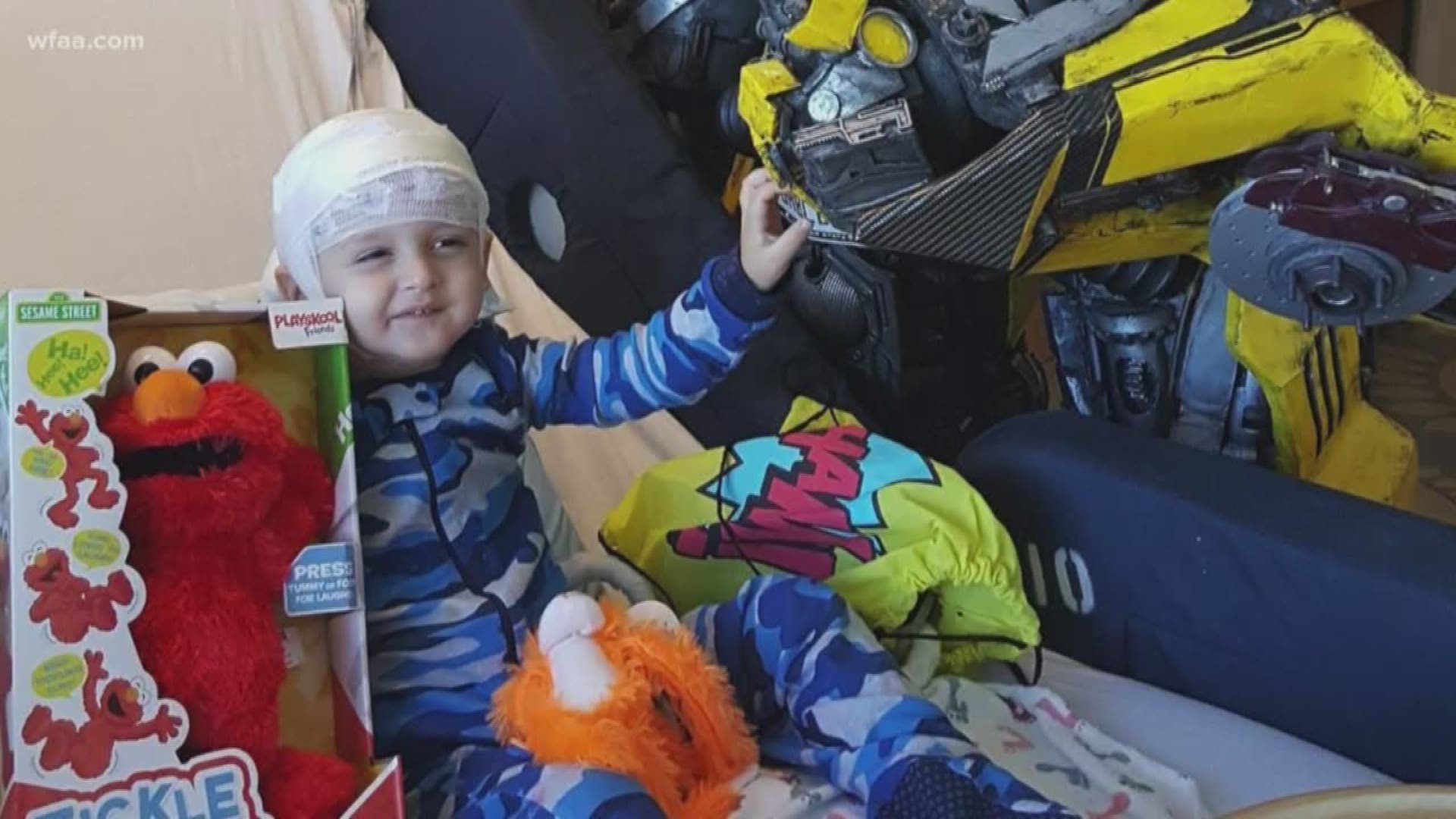TERRELL — Every day he plays with building blocks, plastic tools, stuffed sharks and crocodiles, but Owen Hamilton must also endure needles and medicines and overcome tears and fears.
“We’ve got to do medicine,” Ryanne Hamilton of Terrell told her three-year-old son, in the kind of comforting voice only a mom can provide. “It makes you feel better.”
“No. Not make me feel better,” Owen said, in the kind of voice that can break your heart.
As Ryanne’s husband, Ryan, gently held Owens arms, she injected their son with medication that is helping keep him alive. They go through the process every day.
Unfortunately, Owen is old enough to be afraid of the needles, but not old enough to understand why he needs them.
Owen has a severe form of hemophilia, a genetic deficiency which prevents his blood from clotting. He is lacking factor VIII, a clotting protein.
The factor therapy he must take to prevent or stop bleeding is some of the most expensive medication on the market.
In 2017, his prescriptions alone cost $3 million.
“That’s not including all the doctors’ visits,” Ryanne said. “That is medication alone.”
The medications are manufactured from blood plasma, making them expensive to produce, according to manufacturers. And there is no cure, so demand is high, further driving up the price.
The Hamilton’s insurance does cover the cost of Owen’s medications after they meet their yearly deductible, but Ryanne said she spends almost every lunch hour on the phone explaining why certain medications are necessary.
“There is always a pushback,” she said. “Say Owen needed intravenous antibiotics on top of his factor. Well, they approved the factor but denied the I-V antibiotics. We were hospitalized because of it.”
“It does financially take a toll,” she said. “It takes a toll on the whole family – financially and emotionally.”
Caring for Owen takes sacrifice and strength. The entire family is in the fight together.
They went to Washington, D.C. to lobby lawmakers and raise awareness not only about the disease but about the financial and physical hurdles Owen will forever face. But outings like that trip are rare.
“I try not to refer to us as hermits, but sometimes we have to be,” Ryanne said. A small bump or slight tumble could lead to major internal bleeding, even with the multi-million-dollar medication.
Ryan said, “He could fall and hit his head and you’d never know it.”
Owen goes nowhere without a blue protective helmet. The fabric on the helmet features cars and trucks and buses – some of Owen’s favorite things.
The helmet is the only outward sign of an internal battle – a battle he and his family are fighting with strength and courage.
“You will go to the ends of the world to do whatever your child needs,” Ryanne said. “We love him and we wouldn’t trade him.”

